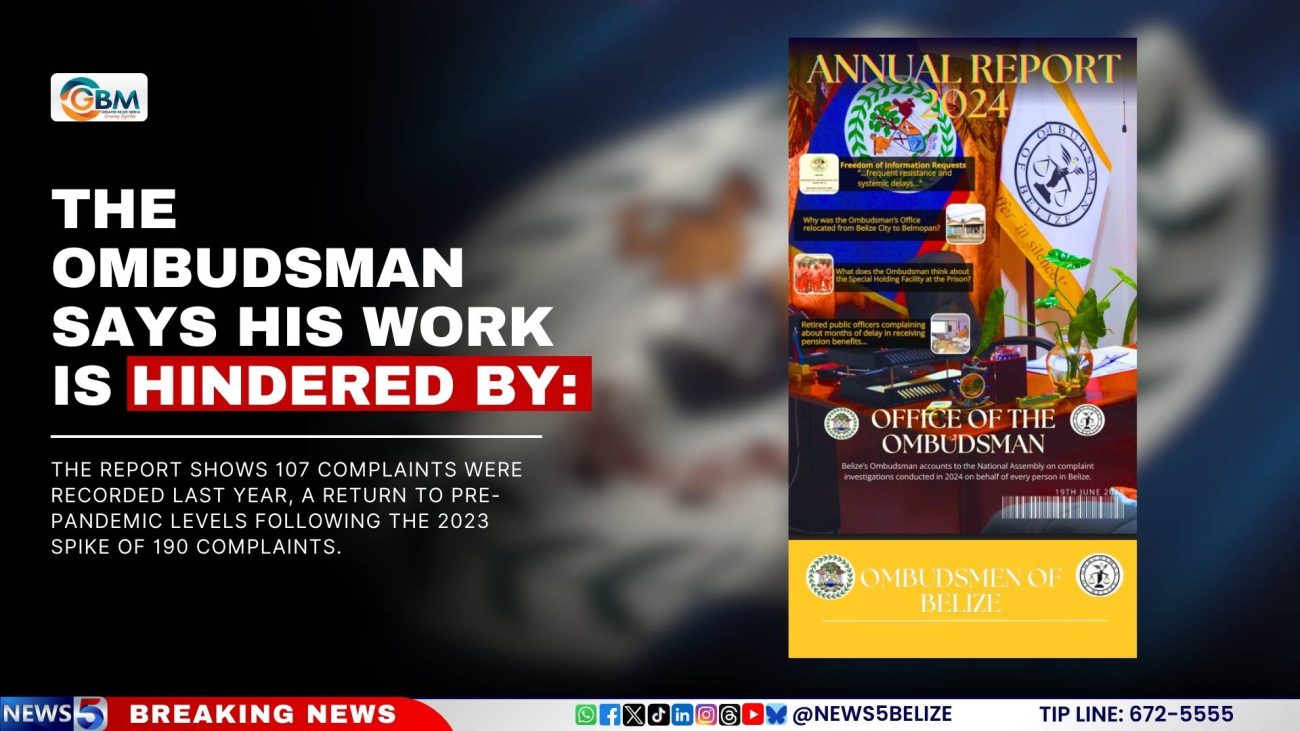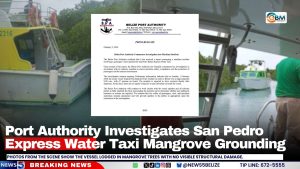The Ombudsman Says His Work is Hindered By:
The Office of the Ombudsman has tabled its 2024 Annual Report in the National Assembly, revealing persistent problems in public service delivery across Belize. The report details hundreds of complaints, pointing at delays, abuse of authority, neglect of duty, and procedural failures in multiple government agencies.
The report shows 107 complaints were recorded last year, a return to pre-pandemic levels following the 2023 spike of 190 complaints.
“This drop from the 2023 peak suggests that the previous year’s spike was largely due to deferred grievances and pent-up demand, rather than an ongoing trend. the report stated. “With regular operations restored, complaint volumes normalised.”
Complaints came from across Belize, with the Belize District leading at 73 cases. Cayo District followed with 12 complaints, and Stann Creek District with 9. Meanwhile, Corozal, Orange Walk, and Toledo recorded fewer than five complaints each.
Key Areas of Concern
- The Ministry of Home Affairs & New Growth Industries received 49 complaints, nearly half of all cases. “This reflects continued concerns involving the police department, Belize Central Prison and public safety institutions under its jurisdiction,” the report said. Other ministries cited included the Attorney General’s Ministry, the Ministry of Health and Wellness, and the Ministry of Education, Culture, Science & Technology.
- The Ombudsman also raised serious concerns about mental health in public institutions. “Too often, public officers with treatable mental health conditions are left in limbo, neither discharged nor reinstated, as revealed in an investigation carried out by the Office of the Ombudsman, while their careers and dignity slowly deteriorate,” the report stated. Recommendations include amendments to public service regulations, mandatory mental health training for senior officials, and clearer mechanisms for appeals.
- The Freedom of Information Act was also criticised for poor implementation. “Many officers across ministries, statutory bodies, and departments remain unaware of the Act’s existence or their legal obligations under it,” the report said. It called for training, designated information officers, and public awareness campaigns.
- Pension delays were another critical issue. Retired public officers wait months or even years for their benefits, forcing some to rely on loans or family support. The report urges, “Establish Clear Statutory Timelines… Implement a structured exit process… Introduce Temporary Bridging Allowances.”
- The report also reported on inadequate medical treatment for inmates at Belize Central Prison. Inmates requiring specialised treatment often face financial barriers. The Ombudsman recommends a dedicated medical fund and improved in-prison facilities. “Access to healthcare is a fundamental human right, one that does not disappear upon incarceration,” it stated.
- It also pointed out State of Emergency (SOE) concerns. During the June 2024 State of Emergency, detainees reported prolonged confinement and mistreatment. “Gaps were identified in the implementation of the SOE regulations, particularly concerning constitutional protections that should not be derogated,” the report noted. It calls for better consultation with stakeholders and alternative strategies to address gang violence.
Systemic Challenges and Recommendations
The Ombudsman’s work is hindered by delays, poor cooperation from some authorities, limited resources, and lack of full independence. The report recommends stronger enforcement of the Ombudsman Act, improved inter-agency communication, increased funding, and the establishment of complaint-handling units across all public bodies.
“The public’s confidence in the Ombudsman depends on the Office’s ability to hold authorities accountable,” the report stated.
The office also urged the establishment of a National Human Rights Institute to bridge the gap between government, civil society, and international human rights mechanisms.






Facebook Comments